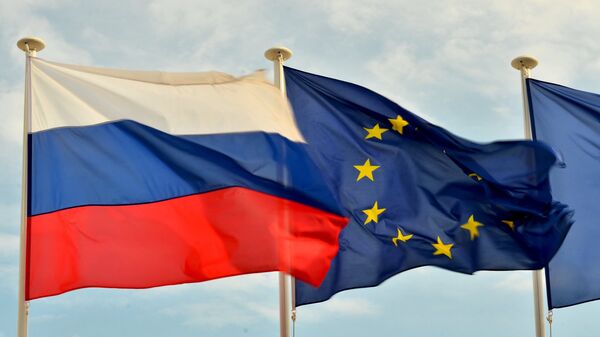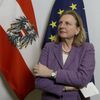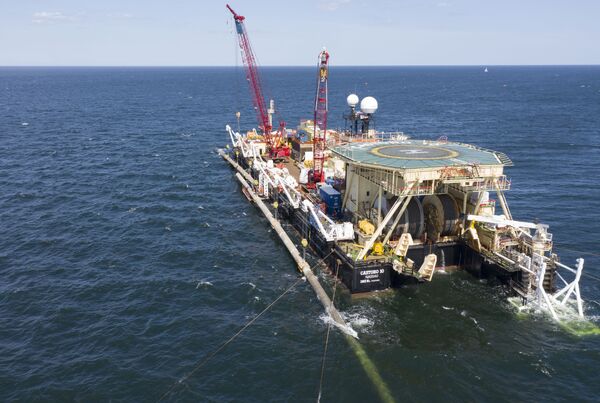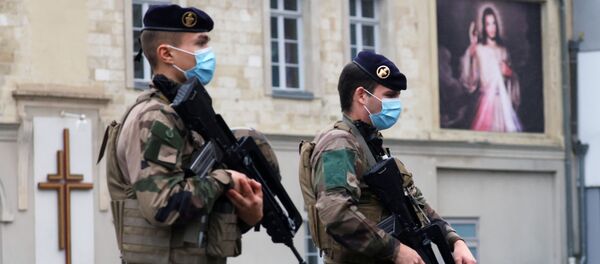There are no friendships between states, only interests. This old principle of realpolitik has always been my guiding principle in the ministerial office. I could not get anything out of the demonstrative expression of friendship, which could only be seen in photos. Foreign policy is primarily about bringing different national interests together and finding a balance. This requires a lot of effort behind the scenes, tact and time.
However, the personal chemistry between the people involved can make a decisive contribution to ensuring that the political relationship can stand the test of time. It is still people with their talents and their experiences who shape diplomacy. The more intensive a serious "face-to-face diplomacy" is, the more channels can be used in case a political or public scandal or even a dispute emerges. At the EU level, relations with Moscow have significantly deteriorated since spring 2014. Sanctions and counter-sanctions over the annexation of Crimea and the war in eastern Ukraine determined the relations. An intensely timed visit calendar has existed for decades in relations between Vienna and Moscow, and which remained largely unaffected by the "swings in the mood".
About Diplomacy and Other Dialogues
If one wants to reduce diplomacy to a mathematical formula, it would read as follows: Diplomacy = to maintain the dialogue under all circumstances. When it comes specifically to the relationship between Brussels and Moscow as a whole, as well as to bilateral relations between numerous EU members and the Russian Federation, I, as a minister, noticed the growing speechlessness. In the EU, we read aloud well-known and comprehensively coordinated positions, which often lack meaning. The diplomatic radius has become small. As a result of the decline in diplomatic craft, it has lost one of its main functions - to create an atmosphere of trust to solve problems. We are in a stalemate, because instead of keeping a reasonable conversation with each other, we have allowed the emotions to put a strain on relationships. I noticed in many discussions a kind of permanent outrage and downright obsession about "the Russians are to blame". Relations between our two countries are not as brilliant as official speeches like to emphasize. Rather, the ambivalence dominates, which is also an essence of the difference between a world power and a small state.
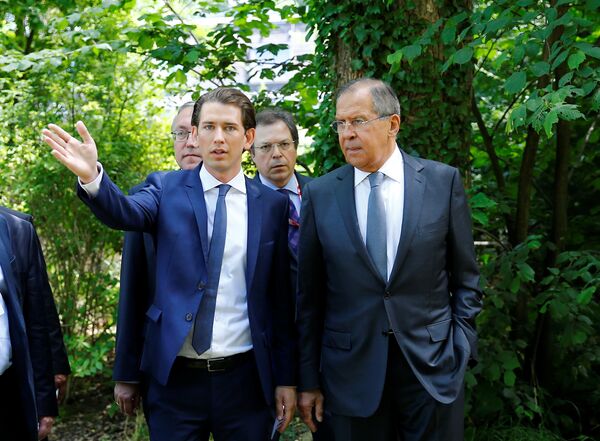
I was soon able to establish an excellent basis for discussions with Russian Foreign Minister Sergei Lavrov, who, thanks to his long professional experience, developed an international overview. Whether an appointment is fixed or a phone call is requested - these agreements will always be respected. Unfortunately, our EU colleagues do not cultivate relationships to the same extent. Ingenious conversation, in which fine humour is not neglected, is a rare commodity in our time; this made me appreciate the meetings with Foreign Minister Lavrov, a gentleman and exceptional interlocutor, even more. I believe that the appreciation was mutual from the beginning. As is well known, reciprocity is the driver of everything, at least in international relations.
Even though it was not a part of the diplomatic protocol, I, as Austrian Foreign Minister, held several meetings with Russian President Vladimir Putin between 2018 and 2019 in a small circle of people. Rare are the decision-makers nowadays who can switch between a variety of topics showing good knowledge in all of them, have an understanding of human nature and are capable of listening. These confidential exchanges with a real statesman are undoubtedly some of the most interesting moments of my tenure as the foreign minister. One of my priorities was to start institutionalized cooperation between Russia and Austria.
Shortly before the fall of the Austrian federal government on May 29, 2019, as a result of a vote of no confidence, we signed the agreement for establishing the Sochi dialogue at the level of foreign ministers and state presidents in the city of Sochi on the shores of the Black Sea. We had developed an ambitious and diverse program in concert with our respective working groups in order to deepen social and cultural exchange in addition to economic and political cooperation within the framework of the EU sanctions. In addition, we also wanted to intensively involve the Russian regions, as well as the Austrian federal states, in this cooperation and exchange. Germany had started the "Petersburg Dialogue" with Russia, while the bilateral format between France and Russia is called Trianon Dialogue. Russia also suggested deepening the cooperation between these formats in the form of a trialogue. We had got some things going, while others got stalled. This happened not only due to the pandemic. It did not trigger these events, but rather amplified the existing problems.
Mutual Ambivalence and Disruptive Manoeuvres
It is rather the said ambivalence that triggers disruptive manoeuvres; sometimes they originate in Vienna, sometimes they stem again from Moscow. For the Russian authorities, Austria's practice of providing asylum for Chechens is completely incomprehensible, which repeatedly causes consular problems. The Chechen community in Austria is one of the largest outside the Russian Federation due to the very high recognition rate of asylum seekers. An espionage case with reciprocal deportation of embassy staff, a newly flared conflict over an alleged poisoning, a dispute over pipelines or cyberattacks can smash all kinds of porcelain that needs to be glued back together. We live in an absurd time, in which seemingly archaic allegations like poisoning meet the asymmetrical threats of the computer age. Speaking of poison: When I returned from Moscow in spring 2018 and fell ill shortly afterwards, some Austrian newspapers headlined: “Was the Foreign Minister poisoned in Moscow?” The answer is no.
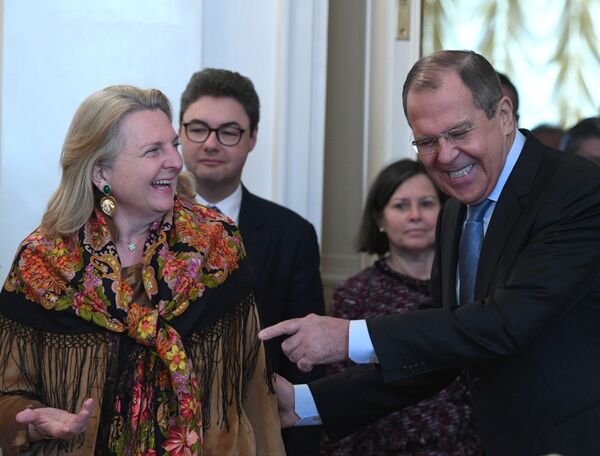
And just as it was in 2018, the spate of Austrian newspapers rushed to speculate on the rumours and conspiracy theories in August 2020 in regards to possible signs of the poisoning of the Russian blogger Alexey Navalny, announcing that the formula of the Novichok nerve agent was passed to my minister desk. Commentators wrote almost every week about my indirect responsibility for the health of Navalny, who fortunately soon recovered from a deadly poisoning. Navalny fell ill during a trip in Russia and, at the request of his family, was brought to a Berlin clinic – something that the Kremlin itself campaigned for. Poisoning is one of the allegations that were brought up against witches until the 17th century. It is terrifying that they help shape reporting in 2020, although it seems that certain thought patterns are indestructible.
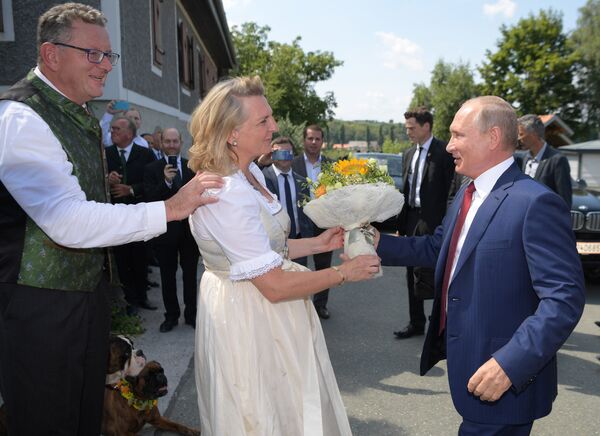
What particularly irritated me while reading it was this phobia, which overshadowed any rational reporting on Russia. As a media target, I regularly received my portion of criticism because I had danced the waltz with President Putin. This image was hyped up in the Austrian media as the epitome of unwanted closeness to Russia. There was no factual analysis, and instead, there was only irrational media condemnation. The village well, near which the rumours used to originate historically, now shifted to numerous open-plan offices. The rest is done via social networks, where moral indignation and ignorance fuel each other. Researching, reading books and reflecting are the cultural achievements that we have lost in many places. I owe almost everything to books.
Discover Russia Through Literature
This article is a personal look at the subject. Not footnotes and various basic statements, but rather exclusively my reflections. In this sense, I can say that I visited Moscow for the first time in May 2014 in order to finally travel to the city that to date was well known to me only from literature, and otherwise remained unknown to me. Two years later I visited St. Petersburg.
As a tourist I had visited these two cities on my own, even enjoyed the opera and was excited to ride the metro, but I had not travelled across the rest of Russia. Unfortunately, this is still the case to this day, because both remote villages and the big cities in the eleven time zones of this huge country remain unknown to me. I am therefore ignorant when it comes to personal encounters with the country and its people. The knowledge that I tried to gain years later about Russian culture, politics and, above all, history, I got from literature. I literally devoured the short stories, novels and poems by Lev Tolstoy, Anton Chekhov, Fyodor Dostoyevsky, Vladimir Mayakovsky and Marina Tsvetaeva. I would soon be particularly fascinated by Mikhail Bulgakov, because this kind of humour is second to none.
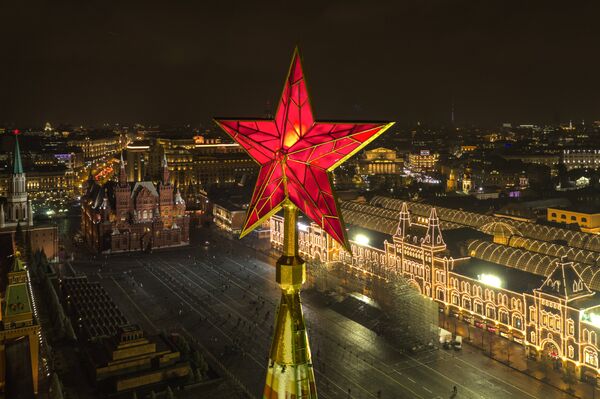
On my first trip to Moscow, I included a detour to Yasnaya Polyana, the former estate of Lev Tolstoy. What a feeling it is to stroll through the salons filled with the Thonet furniture from Vienna, where Pasternak once came for tea, where people would debate and write about another better world and the depths of human nature. The apple trees were blooming and I enjoyed a walk among groups of students. To be able to stand at Tolstoy's grave, a simple grassy hill, was just as moving for me as the visit to Bulgakov's apartment in March 2019 as a minister; after all, a cat still lives in this special place. In the novel “Meister und Margarita”, the speaking cat Behemoth leads us through a surreal Moscow that began to fascinate me.
Soviet Union or Yet Russia?
I developed this relationship with Russian literature in the 1990s. Before that, my image of Russia was that of the Soviet Union as it was conveyed to us in school and in general: ice-cold, far away, threatening and generally inaccessible.
My perception as a child was mainly shaped by the horror stories from the war that family members told over and over again. Maybe talking was better than keeping quiet. "The Russian" as the enemy should absolutely recur in these stories. The grace of late birth had spared me the post-war years. In a village southeast of Vienna, to which I moved almost a quarter of a century ago, I heard many gruesome recollections, especially from those who were then over 80 years old. They told of rapes and people who had disappeared in the Soviet occupation zone. But I also heard little stories of soldiers returning home, who had experienced human misery on all sides and no longer knew who was to blame for what. Why am I telling this?
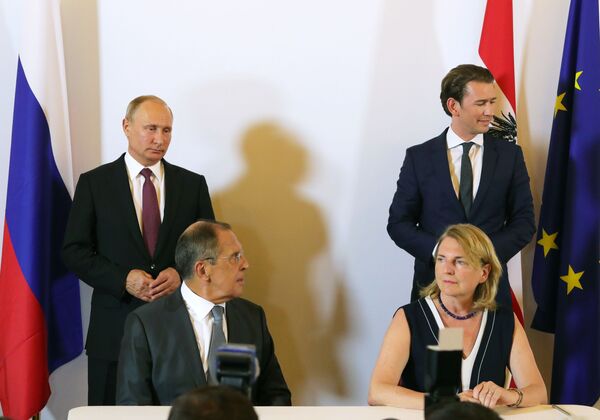
For the simple reason that many open wounds are revealed in the process of a political assessment of the relations between our two states and their citizens. This keeps happening despite the fact that a Russian-Austrian commission of historians managed to publish a joint history book in 2018. There is still no such a book for the joint history of Germany and Russia; incidentally, we have not yet managed to assemble a joint commission of historians that would analyse the history between Slovenia and Austria. Putin having a higher confidence index than some US presidents is not a phenomenon exclusive to Austria – global surveys show similar results. Large parts of the Austrian population see the Russian government and the political situation in Russia more positively than it is shown in public opinion.
But memories of the dark chapters of the occupation time and the aftermath of the Cold War keep emerging. The "soft power" of Hollywood and "blue jeans" shaped the post-war generations in Austria to a greater extent than the historical fact that the Soviet army played a major part in the military defeat of National Socialism. Liberation or occupation - is only one of the heavily controversial questions of the historiography of the relationship between Austria and Russia.
Common Experiences With Soviet Union Wane Gradually
Oddly enough, when I visited Damascus for the first time in 1988, the following sentences from the Arabic textbook, which had been published in the GDR and was also used in Vienna, helped me: "The progressive socialist forces will defeat the reactionary imperialist forces". I became fluent with such ideological phrases even before I learned how to order something to eat in Arabic. Greeted as a “sister from a socialist brother state”, I used this ideological vocabulary from the times of the Cold War in the Middle East. However, my connection to the area known as the “Eastern Bloc” was limited to the knowledge of these phrases. Russia was a country I knew next to nothing about, because I knew more about the Lebanese feudal families and their militias at the time. The Soviet Union was the overwhelming neighbour, who at that time sent a shiver down the spine of many compatriots more than it was attractive for them. How heavy the impact of this legacy of the two-part continent is, in my opinion, not always understood by the western part of Europe. Being a little communist has always been considered chic, and not just in Paris. The French have little to do with the anti-Russian resentment in Central European societies. Accordingly, members of the French government are more relaxed about the issues related to Russia than France's neighbours to the east.
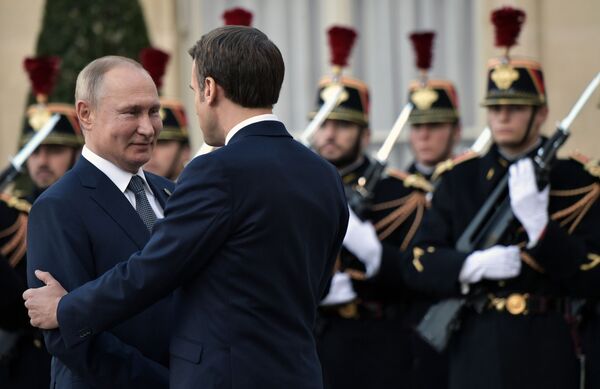
French President Charles de Gaulle consistently used "La Russie" instead of "L'URSS". For the great European, the French acronym for USSR was not suitable to anchor the country historically and culturally to Europe. In the light of his deep-seated scepticism about the transatlantic alliance, he had a trilateral cooperation between France, Germany and Russia in mind. This idea has repeatedly found expression in Gaullist foreign policy, perhaps most intensely in the joint rejection of the Iraq invasion in March 2003 by Putin and his counterparts Jacques Chirac and Gerhard Schröder. Russia returned to the world stage as an international player after the chaos of the 1990s. Austria increasingly became the second home of very rich Russians, and later the Russian middle class would travel to Austria or use it for professional contacts. Hoteliers, real estate agents, banks and private universities in Vienna were the beneficiaries.
Benefits From Dealing With Russia
The view of the Soviet Union as a possible military threat was followed by attention towards business opportunities that opened up with economic stabilization. Profiteers, lightweights of dubious talent and professionals competed for Russian investors and investment opportunities in Russia. Many Viennese law firms have dubiously earned huge riches serving a single rich Russian client. Many oligarchs did not make Vienna their territory to the same extent as London or Tel Aviv, but the connections became increasingly dense. For its part, the Austrian travel industry benefited from Russian guests from all walks of life, and the once weak season in January was now reserved for Russian skiers. The ruble rolled in the Tyrolean mountains, enriching local businesses. Expensive business districts courted “Russian money”, which Austrians like to mock when they talked about their "nouveau riche". But they took it with greedy joy and then, when the financial crisis and the problems of 2014 mixed up certain things, they trembled out of fear of losing their source of easy money. Many Austrians still dream of visiting Russia, considering it an undiscovered jewel. The planned electronic visas will make travelling and discovering Russian destinations easier for them.
We got a little closer as humans and became more on par in terms of business. The fact that Austrian corporations, for example, some banks, did not leave the country during the ruble crisis in the summer of 1998, but stayed in spite of all gloomy prospects, should give “the Austrians” a certain bonus for a long time to come. The situation was different with the so-called Nabucco natural gas project of the state-owned energy company OMV. From 2002 onwards the company has been looking for alternative options for natural gas imports outside Russia with which it had supply contracts that had existed since 1968. The Austrian company managed to secure a long-term supply contract with the Soviet Union, which the Russian side has always respected, in the middle of the botched Prague Spring.
Nabucco remained just a project, mostly used in marketing, because no natural gas was pumped through it from Iran or Turkmenistan as initially planned. This happened because the managers assigned to the project had failed to correctly assess the geopolitical conditions related to it. According to my observation, this ignorance stems from a dubious recruiting policy in some Austrian corporations, where "party politics" and lack of transparency dominate. In contrast, the workforce in many Russian companies has become more professional, thanks in part to an excellent education system. OMV later turned back to its Russian partner, which is taking part in the construction of additional strands of the Nord Stream pipeline, the so-called Nord Stream-2 project. With all the intensity in the Russian-Austrian "business", a phase of relaxed bilateral relations was followed by a new chapter of tensions. History, emotions, various interest groups and also apparently foreign policy schools of thought played their part in it.
It seemed only logical to me in light of our neutrality policy, under which we have always been eager to host international organizations and offer them good services, especially since Bruno Kreisky, to cultivate active diplomacy both with Moscow and Washington, instead of just waiting "receptively" to see what the others do, only to reluctantly position ourselves somewhere in their shadow. I worked out the basis for the strategic partnership with the US in February 2019, when the "Salzburg Dialog" was established. We had a new dynamic in mind in order to shape the collaboration in such a way so that as many areas of our societies as possible would participate in it and help us shape this cooperation. It was supposed to help us to easily resolve some of the issues, which inevitably arise in even the best of bilateral relations.
But allow me to share some of the conclusions I have reached so far:
- Thesis One: Relations Between Moscow and Vienna Are Fragile
When President Vladimir Putin visited his counterpart Alexander Van der Bellen with a large ministerial delegation in Vienna in June 2018, the atmosphere was, by and large, excellent. The situation in Ukraine, sanctions and the Skripal affair cast their shadows over many things, but professional, relaxed interaction dominated the bilateral relationship.
Essentially, something similar to equality emerged in the relations between two absolutely unequal states. On the one hand was the Russian Federation, which successfully defied the sanctions introduced over the Crimean crisis and had smartly used the income from oil and gas exports for economic consolidation; on the other hand, was Austria, which assumed the EU presidency and assembled a new centre-right government, attracting international attention.
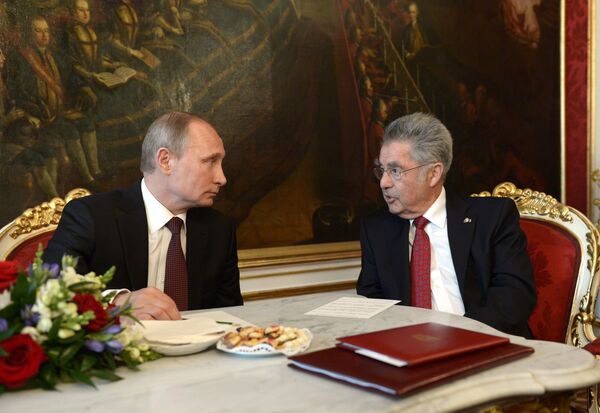
In addition to the discussion of bilateral political issues, the program of the visit largely focused on 50 years of natural gas supplies by Gazprom, which Van der Bellen as the economist clearly preferred over shipments of liquefied gas from North America, despite the ecological commitments. The dense program was concluded by the opening of an exhibition at the Kunsthistorisches Museum devoted to the two rulers Catherine II and Maria Theresa. Everything seemed to be on track in terms of deepening bilateral cooperation even in times of sanctions; there was consensus on this issue across the party lines. The following year I accompanied the federal president in his visit to Russia, where he and President Putin ceremoniously launched the Sochi Dialogue in the city of Sochi on the shores of the Black Sea.
A year later, unfortunately, the climate between Vienna and Moscow was rather frosty again. I already mentioned the sticking points that caused deep mutual disgruntlement. The Russian side mostly accused Vienna of resorting to "Megaphone diplomacy", as the allegations of the poisoning of Navalny, the political responsibility of the Russian government for it, as well as calls for new sanctions, were extensively communicated via Twitter. Face-to-face diplomacy can only be used to a very limited extent during a pandemic, but in view of the economic turmoil resulting from it, there are opportunities for selective cooperation between countries. Medicine is just as challenged as digital research. However, the signs mostly point to continuing confrontation, which will steer us into further alienation in the foreseeable future. Now is the time when science and culture could fill in the "vacuum". This requires foresight and maturity, but a certain teenage mentality dominates in Austria and beyond, which favours pouting and radio silence over rational interaction.
- Thesis 2: The Imperial Courts, Mistrust and Missed Opportunities
History does not repeat itself, but rhymes, as a quote attributed to the US writer Mark Twain puts it. In this sense, the return of distrust also rhymes. In the relationship between the imperial court in Vienna and that of the tsars in St. Petersburg, suspicion and disappointment over Austrian political schemes haunted the Russian side. A look back through the centuries, especially the decades before the First World War, reveals a long list of lost opportunities. The Crimean War was a particularly complicated case. In the Balkans, the armies of the two states faced one another along the old boundaries that separated Catholics and Orthodox.
Recently uncovered unknown political essays by Stefan Zweig, which were titled "Before the Storm - Europe between 1900 and 1914", show the author to be not as "European" as I had previously imagined. The newly published essays show a very Germanophile young writer, who consistently supports Berlin's great power ambitions in its struggle against the British Empire. The passages about Russia are particularly interesting, because Zweig's deep-seated contempt for everything Russian, whether cultural or political, can be seen there. The highly educated Zweig represented a widespread view of many Viennese at the time, whether Jewish upper-class or German petty-bourgeois, who were full of prejudices about Russia. Vienna and St. Petersburg were on similar levels – something that would change suddenly after the war and thus complicate matters. Here and there Russian would make a gesture, which Austria would leave unanswered whether deliberately or not.
The following incident did not make world history, but it is often small things that reflect the bigger trends. When the news of the death of Crown Prince Rudolf reached St. Petersburg in January 1889, a court ball was just taking place. At the request of the tsar, mourning was announced to commemorate the death of the Habsburg. Such a gesture shows a certain delicacy in good and bad days, and it is something I was able to experience time and again throughout my personal encounters with the Russian side. President Putin visited the memorial service for the Austrian Federal President Thomas Klestil, who died in July 2004. These are the gestures that affect everyday political life. They make all the difference. I also made gestures towards my Russian interlocutors and I stand by them, although I am heavily criticised for these gestures to this day. As a former foreign minister, I cannot help but regret how many opportunities have been missed because there was a lack of ideas and courageous people in the European diplomatic apparatus.
I would like to finish this article with the following conclusion.
- Thesis 3: Europe Will Fare Better With Russia
When President Putin gave his highly acclaimed speech in German in the Bundestag in the autumn of 2001, he proposed to the Europeans and the West, in general, to work together, including in the sphere of fighting against international terrorism. His proposal fell on deaf ears at the time. In interviews, I consistently referred to the need to make the Russian Federation an indispensable partner in resolving our concerns, whether in regards to the Middle East, in questions of energy supplies, or science, to name just a few areas.
When the British Foreign Secretary Jeremy Hunt visited me in Vienna in August 2018, he asked me for my take on the general geopolitical situation. My spontaneous response was: "We shouldn't waste our time antagonizing Russia. The real problem is China". Hunt responded with the following words: "Interesting, we hear the exact same words from Washington". It is therefore completely incomprehensible to me how the tone of the mutual interaction deteriorated so dramatically in the summer of 2020, even though I am unaware who might benefit from this new ice age.
The route of bilateral relations remains for Austria. However, it would require diplomacy with more backbone, empathy, solid historical knowledge and consistency in order to have the chance to succeed.
